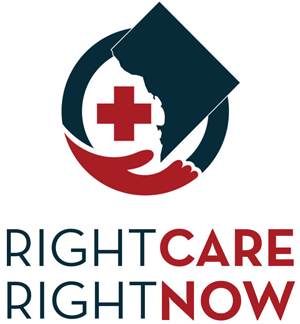Text DC RIGHTCARE TO 468311 for more information.
Right Care, Right Now
Providing every caller to 911 with the most appropriate and responsible path to improved health outcomes.
Not every call to 911 necessitates transportation by ambulance to a hospital's emergency department. Based on a caller's description of their symptoms, a caller may be transferred to a registered nurse in order to determine the most appropriate path for treatment.
Frequently Asked Questions
All calls to 911 are answered as quickly as possible, but not all calls are the same. Our goal is to connect 911 callers with medical needs to the most appropriate health care. This may or may not include transport to a hospital emergency department.
The goals of the Right Care, Right Now program are to improve patients’ health outcomes and to preserve the DC Fire and EMS Department’s (FEMS) resources for those patients with life threatening injuries and illnesses. This should also free up beds in crowded hospital emergency departments, which will benefit all critically ill emergency patients. The District has one of the highest per capita EMS call volumes in the nation. Our high non-emergency call volume strains the Department’s resources for emergencies.
Under the Right Care, Right Now program, callers to 911 with non-emergency injuries or illnesses are transferred to a nurse, either by the 911 call center or by a FEMS first responder. The nurse asks the caller questions and assesses the patient's symptoms so that the nurse can refer the caller to the most appropriate non-emergency medical care available, most likely a community clinic or urgent care clinic in the caller’s neighborhood. Medicaid, DC Healthcare Alliance enrollees, and non-ambulatory patients are provided with free transportation to and from the clinic.
When should patients call 911?
A patient should only call 911 for a serious medical emergency (for themselves or someone else) that they believe is life threatening or that may be or become life threatening, for example: trouble breathing, chest pain, heart attack, cardiac arrest, fainting, a severe allergic reaction, injuries from a fall or accident, seizures, severe pain, or other urgent matter. Patients should not call 911 for minor illnesses or injuries, for example: a cold or virus, a minor cut, or for a routine or chronic medical matter that can be addressed through an appointment with a primary care physician.
Will FEMS still respond and transport patients to a hospital if they call 911?
It depends. If the patient's condition is an urgent, life threatening, or potentially life threatening emergency, the 911 call-center (Office of Unified Communications) will dispatch FEMS first responders who will assess the patient's symptoms, transport them to the hospital directly, or determine whether American Medical Response (AMR), the Department’s third party provider, should transport them to the hospital.
If the patient's condition is not a medical emergency, they may be (1) transferred to the Right Care, Right Now Nurse Triage Line and the nurse will assess the patient's symptoms and determine the most appropriate medical care for their condition, OR (2) a FEMS first responder will assess the patient's symptoms and, if they are eligible based on FEMS protocols and guidelines, connect them by phone to the nurse, who will assess the patient's symptoms and determine the most appropriate medical care for their condition.
How will it be determined whether the patient will be transferred to the Right Care, Right Now Nurse Triage Line?
The 911 operator will ask the patient questions about their medical symptoms or the FEMS first responder and will assess the patient. Based on the 911 operator's questions or the FEMS first responders assessment, the patient may be transferred to the Nurse Triage Line for appropriate care.
Resources
- Right Care, Right Now - Frequently Asked Questions
- Right Care, Right Now - Phase II Facts
- Right Care, Right Now - When to call 911 vs. When to call your doctor - Participating Clinics
- Right Care, Right Now - What happens when you call 911?
- Map of Participating Clinics
- Right Care, Right Now - Launch Press Release



